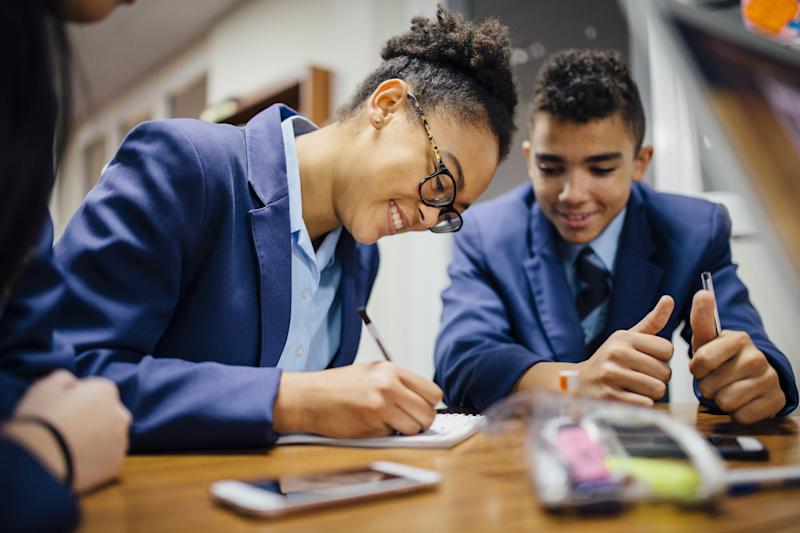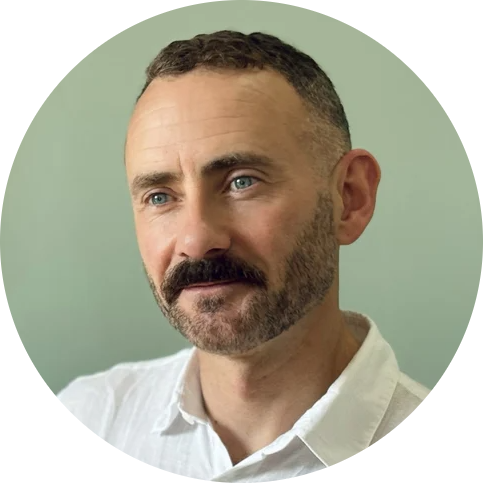Growing Up in the 2020s - National Study
Growing Up in the 2020s is a landmark national study that will follow thousands of young people in England as they go through secondary school.

Aims of the study
Growing Up in the 2020s aims to better understand how a young person’s environment and experiences during adolescence (the secondary school years) impact their short- and long-term education and wellbeing outcomes.
By following the same group of young people and their families for several years, the study aims to understand how young people's school life, home life and relationships shape their future education and development.
The study will also provide insights into the important transition period from education to employment or other post-16 routes, allowing researchers to track young people’s trajectories from adolescence into young adulthood.
We will also collect information from young people’s teachers to form a more detailed picture of what life is like for young people, in school as well as at home.
Who is conducting the study?
The Department for Education (DfE) has commissioned Anna Freud, UCL and Ipsos to collect data for Growing Up in the 2020s. Anna Freud manages the project, develops the survey questions and analyses the data to create research reports.
UCL works with Anna Freud to develop survey questions and support the analysis of research data. Ipsos is responsible for collecting data from families and school staff for this study.
Who has approved this study?
This study has been approved by UCL Research Ethics Committee - reference no. 28343/001.
Key features of the study
What do we want to find out?
We want to find out what growing up in the 2020s is like. That includes young people’s experiences at school and at home, as well as their experiences of the areas they live in.
We will ask young people about:
activities (e.g., extracurricular activities, exercise and social media use)
school (e.g., school engagement, test anxiety and academic aspirations)
health and wellbeing (e.g., subjective wellbeing, accessing mental health support and health behaviours)
friendships and bullying
time spent online
family context
substance use
characteristics such as their gender and ethnicity, and whether they have SEND and caring responsibilities
preparing for the future (e.g., ambitions and aspirations, hopefulness, post-16 destinations)
we will also carry out reasoning and executive functioning (thinking) activities with young people.
We will ask parents and carers about:
school (e.g., their involvement in school and their child’s academic aspirations)
health and wellbeing (including mental health and wellbeing)
family context
characteristics such as their gender and ethnicity
employment
We will ask teachers about:
young people’s school engagement and attainment
young people’s mental health and wellbeing
young people’s post-16 destinations
Participants
Who are our participants?
We have selected a group of young people in England who are in Year 8 in the 2024/25 academic year. These young people are representative of young people in their age group and will help us understand what it’s like to grow up in England in the 2020s.
We will also be asking parents or carers of these young people and a nominated teacher to participate in the study.
By engaging with schools, we will gain a better understanding of young people’s educational environment and engagement in school.
How were young people chosen for this study?
Most young people have been identified through the National Pupil Database which holds details of all pupils in English state education.
Can I offer to be a participant?
We are not able to accept volunteers at this time.
I am already a participant in this study
If you are a young person, parent/carer or teacher participating in this study, please see here for more information.
Methodology
What does being part of the study involve?
There will be four waves of data collection. This will be when young people participating in the study are in Years 8, 9, 11 and 12.
Data linkage
We will combine information young people provide in the survey with information already held by DfE to build a more rounded picture of families’ lives. For parents and carers, we will also ask their permission to add information about them held by public bodies outside DfE, including the NHS. This will make the study even more valuable without taking up more of young people’s, parents’ and carers’ time.
What happens to the information that participants provide?
All information provided will be treated in the strictest confidence in accordance with UK data protection legislation. The data is collected and used for research purposes only.
Staff biographies

Prof. Jess Deighton
Jess is Director of Growing up in the 2020s. She is also Director of Applied Research and Evaluation at Anna Freud, Professor of Child Mental Health and Wellbeing at UCL, and Director of the Evidence Based Practice Unit.

Tanya Lereya
Tanya is a Senior Research Fellow at Anna Freud. Her role in EOPS-C is research project manager.

Jess Stepanous
Jess is a Quantitative Research Fellow at Anna Freud. Her role in EOPS-C is research project management support and longitudinal data analysis.

Julian Edbrooke-Childs
Head of Evaluation at Anna Freud

Prof Eamon McCroy
Eamon is CEO of Anna Freud and Professor of Developmental Neuroscience and Psychopathology at UCL where he co-directs the Developmental Risk and Resilience Unit.

Emla Fitzsimons
Emla is a Professor of Economics at UCL. Since 2014, she has served as the Principal Investigator of the Millennium Cohort Study, a major UK-wide longitudinal study tracking over 19,000 children born around the year 2000

Jake Anders
Jake is Professor of Quantitative Social Science, Deputy Director of the UCL Centre for Education Policy and Equalising Opportunities (CEPEO) and Principal Investigator of the COVID Social Mobility & Opportunities (COSMO) study.

Larissa Pople
Larissa joined the UCL Centre for Longitudinal Studies in 2022 as part of the survey team working on the Millennium Cohort Study and more recently the Growing up in the 2020s study.

Nicholas Gilby
Nicholas works in Ipsos’ Probability Surveys Unit, with over 20 years of experience covering the technical aspects of complex social surveys.

Julia Pye
Julia works in Ipsos’ Probability Surveys Unit. She recently managed the fieldwork on UCL’s ‘Generation New Era’ feasibility study, which tested the methods for a planned new UK-wide birth cohort study.

Christy Lai
Christy works in Ipsos’ Probability Surveys Unit. Since joining the company in 2020 she has contributed to a range of research studies, including the ninth sweep of the Next Steps study which looked at the experiences of those born in 1989-90 at age 32.


